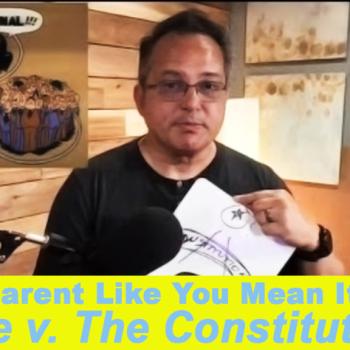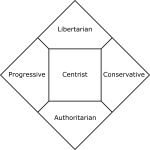
 Real Stuff My Dad Says 82: Who Do You Think You Are? (How Rachel Dolezal Impacts Your Family) Play Now | Play in Popup | Download
Real Stuff My Dad Says 82: Who Do You Think You Are? (How Rachel Dolezal Impacts Your Family) Play Now | Play in Popup | DownloadI remember so many times as a boy wanting to go somewhere, do something, wear something, or buy something that “everyone else” was doing. Peer pressure took up residency in our home in a big way for a number of years – as is the case in almost all homes with teenagers.
My parents would say the perfunctory, “If Brian jumped off a bridge, would you?”
(Sadly, I now find myself pulling this one out when flabbergasted by my own pre-teen)
But, after the dust settled, the message my dad almost always landed on was this:
“Who do you think you are?”
Now, when most parents pull this line out from their arsenal, it’s typically in response to some sort of disrespect from their kid. What’s implied is, “Do you think that you are better than me?”
However, what my dad meant was far from this.
The meaning behind Dad’s words was much deeper and life-defining.
Dad meant, “From what basis do you find your identity? From your friends? From your clothing? From your report card? From your accolades? From your emotions?”
Because, if my identity was or is derived from any of these foundations, I’m nothing but a lost dog chasing his tail.
You see, while my parents repeatedly reminded me that parenting doesn’t come with an owners manual, there are, in fact, several amazing resources we can glean from – including Rick Warren’s “Purpose Driven Life”. One aspect of life that Rick has written and spoken on multiple times is the “Christianese” term: “Finding Your Identity in Christ”.
Here’s what it means. 2 Corinthians 1:22 says:
“He has identified us as his own by placing the Holy Spirit in our hearts.”
And Galatians 2 tells us that our faith will grow stronger as we focus on our identity in Christ.
So, according to Rick:
“What this means is that you abandon any image of yourself that is not from God. You stop accepting what others have said about you, how others have labeled you, and how others have defined you.
You start believing what God says about you, that he is pleased with how he created you, and that God defines you.
You’re not defined by your feelings. You’re not defined by the opinions of others or by your circumstances. You’re not defined by your successes or failures. You’re not defined by the car you drive, the money you make, or the house you say you own when the bank really does.
You are defined by God and God alone. He identifies you as his own.
The thing is, if you don’t know who you are, then you’re vulnerable to other people telling you who you are. But the concrete, solid, gospel truth is that you are who God says you are, and no one else has a vote in the matter.
This “identity issue” is an important part of living the abundant life. Jesus was able to face the incredible demands of His mission because He knew exactly who He was. He knew that He mattered to God, and that gave Him confidence to move purposefully in faith.
We, as Christ-followers, are now identified with Christ and have the power of the Holy Spirit within us. We are God’s precious children, and He created us in a way that pleases Him.”
So, resting in the value that I have as God’s adopted son should bring enough comfort, confidence, and encouragement that I should be able to live a purposeful life without the distractions of self-doubt, peer pressure, or insecurity, right?
Wrong.
Of course, we all suffer from these, no matter how old we are, how successful we may become, or what life throws our way.
But what next?
That’s what my dad has always talked about. What’s my next move? Do I wallow in all that doubt, sorrow and misery, or do I look for the truth and pull myself up by clinging to how God sees me – my “identity in Christ”?
So, now I’m tasked with passing this lesson on to my own kids. I get to instill in them the knowledge that God loves them so much that He wants to spend eternity with them, if they decide to follow Him. And by doing so, they have a whole new “identity”, that supersedes any award or praise they may receive, as much as it validates them when they feel unvalued, lifts them up when they are insulted, and strengthens them when they fight life’s battles.
All this from a little thing called “identity”.
Yet, my poor boys are growing up surrounded by a culture unlike the one that I grew up in. I was worried if my “identity” might be tarnished because I didn’t wear the right clothes, or hung with the right crowd. My kids have all this, plus questions like, “What gender do you identify with? What ethnicity identifies you? Who do you feel you are?”
Suddenly, the right style of shoes seems insignificant.
For those of you who have been camping all week and missed the social media/broadcast media buzz surrounding Rachel Dolezal, I’ll summarize:
Up until last week, Rachel was the Spokane, WA chapter president of the NAACP. She was born with white skin to a Caucasian couple, yet a few years back was sporting dark skin, and telling everyone that she was indeed black.
According to the New York Times:
“…while she cannot claim a hint of black ancestry, she refused to concede that she had misled anyone. ‘I identify as black,’ she said with a smile.
She also described herself as ‘transracial’ and said: ‘Well, I definitely am not white. Nothing about being white describes who I am.’
…Her story has set off a national debate about the very meaning of racial identity, with some people applauding her message and goals and others deploring her methods and actions.”
The Times article concludes by reporting that Rachel, “stuck to her insistence that racial heredity does not equal identity.”
And this is exactly where Rachel and I break stride.
You see, I don’t care if someone has light skin or dark. I don’t care if their hair was once blonde, but now it’s black, or red for that matter. I don’t care if a woman’s breast changes size, or if a guy decides to wear lifts in his shoes or hair plugs on his head…
So long as they don’t find their identity in any of these things.
As Christians, we find our identity in the fact that we are adopted into God’s eternal family.
Romans 8:15-17 tells us:
The Spirit that we have makes us God’s chosen children. And with that Spirit we cry out, “ Abba, Father.” 16 And the Spirit himself speaks to our spirits and makes us sure that we are God’s children. 17 If we are God’s children, we will get the blessings God has for his people. He will give us all that he has given Christ.
You see, through this lens, Rachel is wrong. Our heredity as adopted children of God does, in fact, equal our identity. It sets the boundaries by which we live, it offers the freedoms of which we enjoy, it offers the hope that keeps us going day to day, and the joy that gets us through life’s toughest of seasons as well as the most celebratory.
It’s this very “colorblind” worldview that I instill in my own kids – one where we are constantly mindful that each and every one of us are all created in God’s image, not possessing ever-changing images that change with the whims of our feelings.
So, this all begs the same question my dad used to ask me:
“Who do you think you are?”
Are you a child of the Almighty God, or are you identified by your own feelings and circumstances, that will ultimately leave you in the same place as everyone else who denies God’s offer?
The choice is yours.
As for me and my family, I like Rick Warren’s words that my dad read to me:
“You are God’s precious child, and He created you in a way that pleases Him.”
















